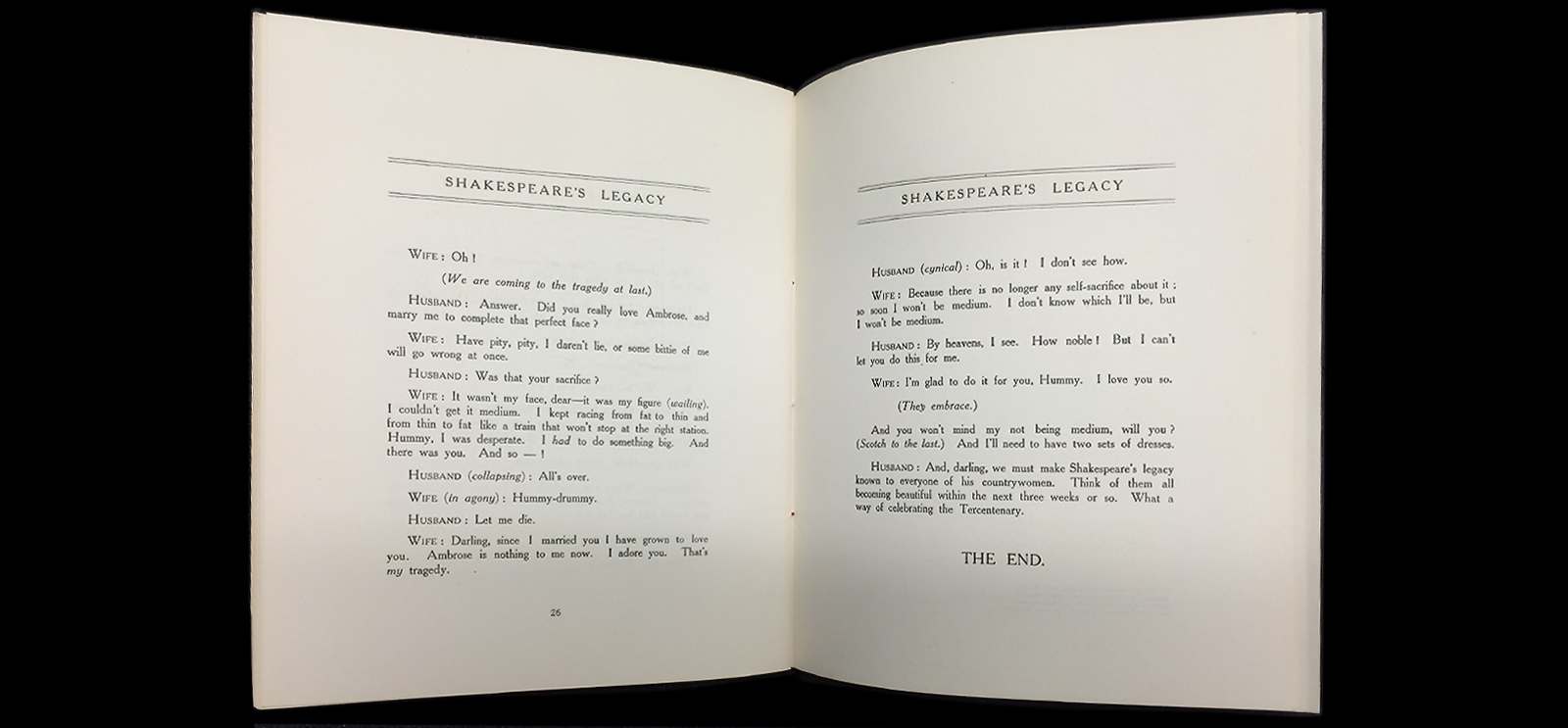
(Special Collections Research Center, University of Chicago Library)
A century-old J. M. Barrie play gets a Chicago revival.
In 1916, the tercentenary of William Shakespeare’s death, the Theatre Royal, Drury Lane, in London hosted a matinee production of J. M. Barrie’s one-act play Shakespeare’s Legacy to raise funds during World War I. The 26-page absurdist comedy follows a newly married man who finds out that his wife grew up in a house scattered with previously undiscovered manuscripts written by Shakespeare. In addition to revealing Shakespeare to be a Scot who definitely did not rely on Sir Francis Bacon as a coauthor, one of the lost works contained the cosmic secret to enduring physical beauty—virtue, charity, and sacrifice. The husband is pleased his wife will remain angelic inside and out, until he realizes one of her acts of charity may have been giving up a handsomer suitor to “complete that perfect face.”
[[{"type":"media","view_mode":"media_original","fid":"3870","attributes":{"alt":"","class":"media-image","height":"293","typeof":"foaf:Image","width":"500"}}]]
Twenty-five copies of the play were printed by English journalist and editor Clement King Shorter for distribution to his friends; the University’s Special Collections Research Center has copy number seven, part of a trove of Barrie’s work (including a first edition of Peter Pan) donated by a retired Chicago accountant in 1969. It’s one of only a few copies of Shakespeare’s Legacy in the United States, and the copy the theater company Shaw Chicago relied on for its fall production of the play as part of its Shakespeare 400 celebration.
The production was the American premiere of Shakespeare’s Legacy. Shaw Chicago was “very thrilled to have found it,” says University rare books librarian Catherine Uecker, and used a PDF of the library’s edition for their staging. The revival of the piece prompted Uecker to read through it herself, which is the “wonderful thing about what we have,” she says. “Sometimes a researcher will come in and discover something fabulous that maybe hasn’t been looked at for a while, and we get to sort of discover it all over again as well.”
